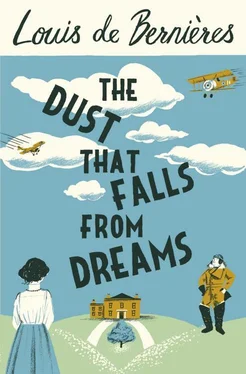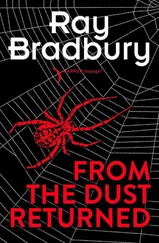Hutch resumed his monologue, as if the chance to talk had liberated his tongue at last.
‘Sometimes the Gonzoubris are right nice to us, the French ones, not the Dutch ones. The Dutch ones want the Huns to win, but no one gets told that at home.’
‘Gonzoubris?
‘The locals, miss.’
‘Why on earth are they called Gonzoubris?’
‘Search me, miss.’
‘I’m sorry, I interrupted you.’
‘You can’t get salad because the Gonzoubris all have pet rabbits,’ continued Hutchinson. ‘They don’t eat it themselves. They just give it to the rabbits. If you want salad you have to crawl around at night and nick it from the bunnies. And the local beer’s complete muck.’ He paused. ‘There was a sweet little girl, though. Can’t tell you how sweet she was, a proper little darling. She’d come and sell us vegetables. But in the end she was got by a shell. Couldn’t even find the bits. That was sad, that was.’
‘I hear the men talking to each other in the hospital,’ said Rosie. ‘They don’t often tell me anything. A lot of what they say is hard to follow. It’s like a different language, you know — crumps, whiz-bangs, woolly bears, archie, flaming onions, moaning minnies, sausages, coal boxes. Of course they explain if you ask. But they don’t tell me what it was really like. I glean it from what they say to each other.’
Millicent came in once again, this time bearing a plate with four scones on it. She glanced at Hutchinson coquettishly as she left, and he caught her gaze, smiling at her.
‘Corporal Hutchinson?’ said Rosie.
‘Yes, miss?’
‘Please can you tell me what a death yell is?’
Hutchinson put down his tea and wiped his brow with his sleeve. ‘It’s like nothing you ever heard,’ he said at last.
‘Yes?’
‘It’s the scream of a man who’s already dead, but he just keeps screaming.’
‘Already dead?’
‘First time I heard it, it was a man who got a bullet and it took the back of his head off. You know, when a bullet gets tired it starts to tumble, and that’s the worst kind to catch. He was dead, no mistaking, but he kept up that yelling. It was the worst thing I ever heard. I heard it two or three times since. You don’t want to dream about it night-times, I can tell you.’
‘How awful,’ said Rosie, blenching.
‘It’s a pretty stiff order, miss. You know what bothers me, miss? What really upsets me? It’s the horses.’
‘The horses?’
‘It’s terrible, the way they scream. I counted once, miss, at the roadside, a place we called Suicide Corner, and I reckoned there’s a horse killed for every two men, give or take. It’s awful, miss, you can’t help ’em in a gas attack ’cause you’re trying to get your own mask on and how do you get a mask on a horse that’s in a panic, even if you had one? And what use is a mask when it’s mustard gas and they’re just one big horrible blister? And you’ve got no stables so they freeze all night and they’re all covered in ice in the morning, and when they get shelled you can’t hide ’em and there’s guts and legs everywhere, and they don’t understand what’s happened, they’re still trying to stand up on legs they haven’t got. And you know what, miss? When you can’t talk to your mates you can always talk to a horse. That’s what the blokes do. They go and tell the horses how bleedin’ frightened they are, and that way they don’t have to tell anyone else. And those horses, miss, they ain’t Boche or British or Froggy. They’re just horses, they don’t know a damn thing about the Kaiser or the bleedin’ King of the Belgians. They’re innocent, not like us, and they’re out there being cut to pieces and slogging their guts out and not understandin’ any of it.’ Hutchinson paused and looked out of the window. His lips were working, and Rosie could see that he was fighting back tears. ‘I’m sorry, miss,’ he said. ‘I didn’t mean to go on about it.’ He fell silent for a minute, wiped his eyes with the back of his hand, and added, ‘I always used to work with horses, before, when I was a kid. A lot of ’em ain’t very bright, but they’re lovely, you know, inside. My dad was a drayman.’
Millicent came in bearing a cake of soap wrapped in brown paper. She presented it to Hutchinson and let her fingers rest briefly in the palm of his hand. She held his gaze for just a moment, looked down coyly, and then offered to fetch more tea.
After she had gone out there was a long silence, and then Rosie asked, ‘Do you happen to know the Reverend Captain Fairhead?’
‘Yes, of course, miss. He was good when Yank died. He’s good when anyone dies. There’s two types of padre. There’s the kind that comes forward into the lines, and there’s the kind that don’t. Captain Fairhead’s up with us quite a lot, miss. Have you ever heard of Woodbine Willy, miss? Well, Captain Fairhead’s that kind of padre. He’s little but he’s tough. He’ll take over from a stretcher-bearer when one gets knocked down, and he don’t give up.’
Mrs McCosh came in, and stopped abruptly when she saw her daughter alone with a strange man. His uniform reassured her slightly. Corporal Hutchinson stood up, and Rosie introduced them. ‘Mama, this is Corporal Hutchinson. Corporal Hutchinson, this is my mother, Mrs Hamilton McCosh.’
Mrs McCosh held out her hand in a somewhat regal fashion, and the corporal was slightly baffled as to what to do with it. He took it lightly in his own and gave it a small shake. ‘Delighted, I’m sure,’ he said. Sensing Mrs McCosh’s froideur , he turned to Rosie and said, ‘Well, miss, I’ve told you everything I came to say, and a little bit more besides. I’d better be on my way.’
‘Please don’t let me keep you,’ said Mrs McCosh.
At the threshold, Rosie asked, ‘When do you go back?’
‘On Monday, miss.’
Rosie took his right hand between hers and looked into his face. ‘Do come and see us again when you’re home next. And thank you for coming and telling me about Ash. I’ll pray for you.’
He was visibly touched, and hardly knew what to say. ‘No one’s ever said that to me before,’ he said finally. ‘That’s a first, that is. By the way, miss, I wanted to thank you .’
‘Thank me? What for?’
‘Bein’ a VAD. You girls, all the men love you. We couldn’t manage without. I thought you’d like someone to say it.’
As he was making his farewells, Millicent took the opportunity to emerge from the top of the stairs that led down to the kitchen, bearing a dustpan and brush, in case any crumbs had been left on the floor. He said, ‘Goodbye, Miss Millicent, and thank you for looking after us so well. I’m very pleased to have made your acquaintance.’
Their eyes met and she said, ‘Good luck. Out there.’
Hutchinson felt his feet carrying him through the door without his consent, and Millicent suppressed the urge to go out after him.
He strode towards Mottingham Station, repeating ‘Damn, damn, damn!’ to himself, and Millicent went back down to the larder and rested her forehead against the cool white wall. It was the first time that she had ever met a man who had affected her in quite this way. She felt something like hunger, and the weakness that accompanies it.
After Hutchinson had gone, Mrs McCosh, who, despite her husband’s strictures, had not found any real war work, nor even looked for any, but had had many Belgian ladies to tea, said reprovingly, ‘My dear, you should not let such men into the house. I will not have it. I hope you didn’t let him use the sit-upon.’
‘Such men? Mama, whatever do you mean?’
‘He is very obviously common. His speech is uneducated, he has an accent, he is probably from some ghastly place like Sheffield, and he carries himself in an ungentlemanly fashion, and he’s probably something perfectly frightful like a Primitive Methodist. I will not have such people coming to this house and bringing down the tone of it, and I will not have you associating with them. We — you — have a certain reputation to conserve, a certain position in the world.’
Читать дальше












